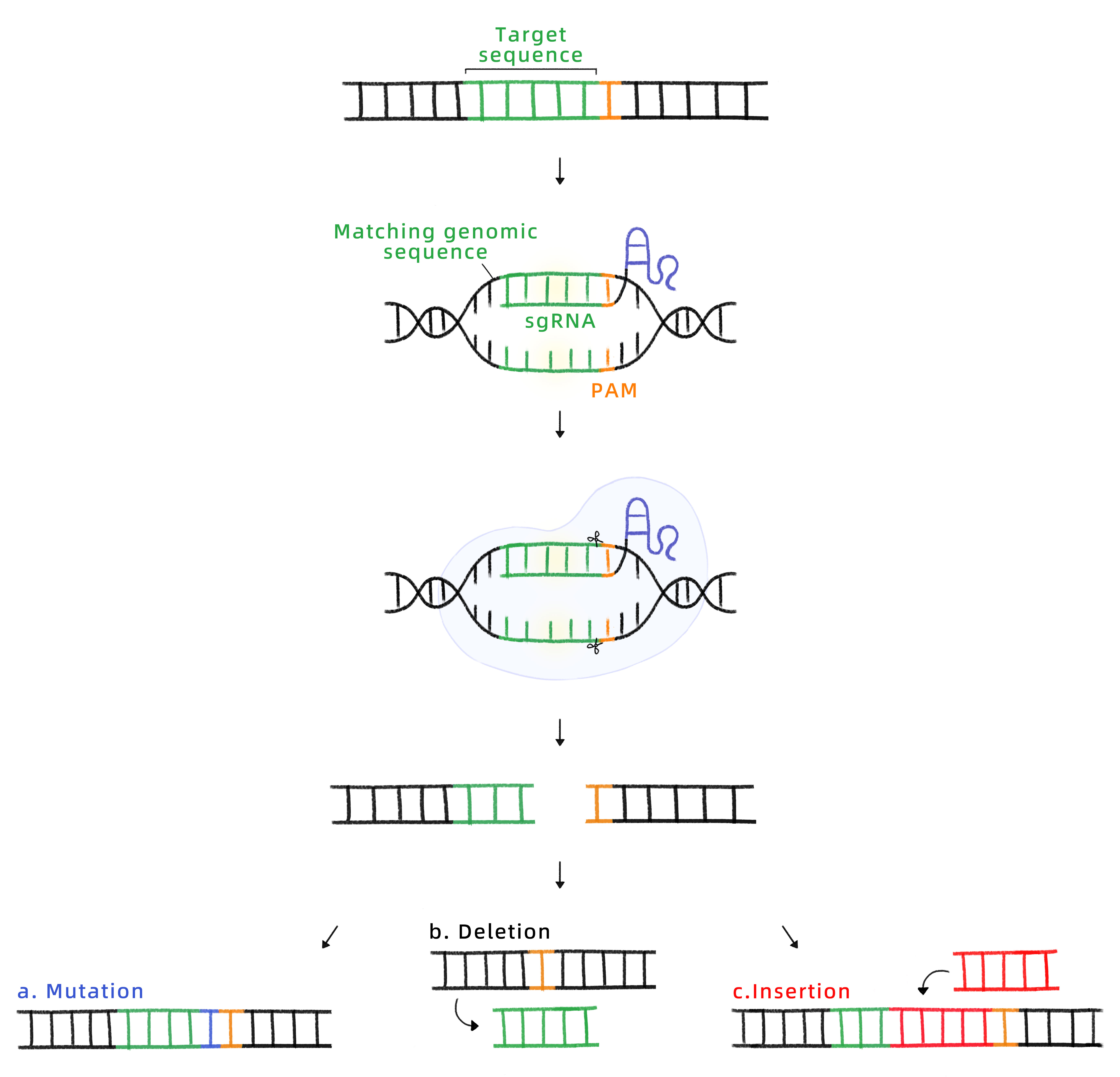EDITGENE has established a mature gene editing platform, CRISPR-EDITx, based on CRISPR/Cas gene editing technology. This platform has an advanced and mature scheme design system and experimental system, which can solve your problems in the research process such as low editing efficiency, difficulty in transfection, and low clone survival rate. It can provide gene knockout cell models that meet your experimental requirements more efficiently and at low cost, accelerating your research progress.

Diagram of Gene Editing Mechanism
Platform advantages
Efficient single clone sorting technology
Using 3D bioprinting technology to assist the single clone sorting platform, the well-plate can fully be seeded with cells in 5 minutes, and the cell survival rate is more than 3 times that of traditional methods. And each clone has an image to ensure it is a single clone
Efficient transfection system
EDITGENE offers lentivirus, plasmid, and RNP transfection systems with hundreds of protocols for hard-to-transfect cells. Our proprietary CRISPR EDITx™ Tran reagent works efficiently in most cells, especially those with low proliferation or transfection rates.
Efficient sgRNA design algorithm system
exclusively developed sgRNA design algorithm, achieving sgRNA editing efficiency of over 80% with low off-target risk
Technical support provided by experienced experts
With over 10 years of gene editing experience for simple and complex editing projects
Related technical services and products











![[Literature Review] Cas9 Safety Breakthrough: Reducing Off-Targets from 77% to Zero Translocations](/uploads/20250527/bL2GJjteMDvzmZys_53c82bdd67704fe0e159246934f924ee.png)

Comment (4)